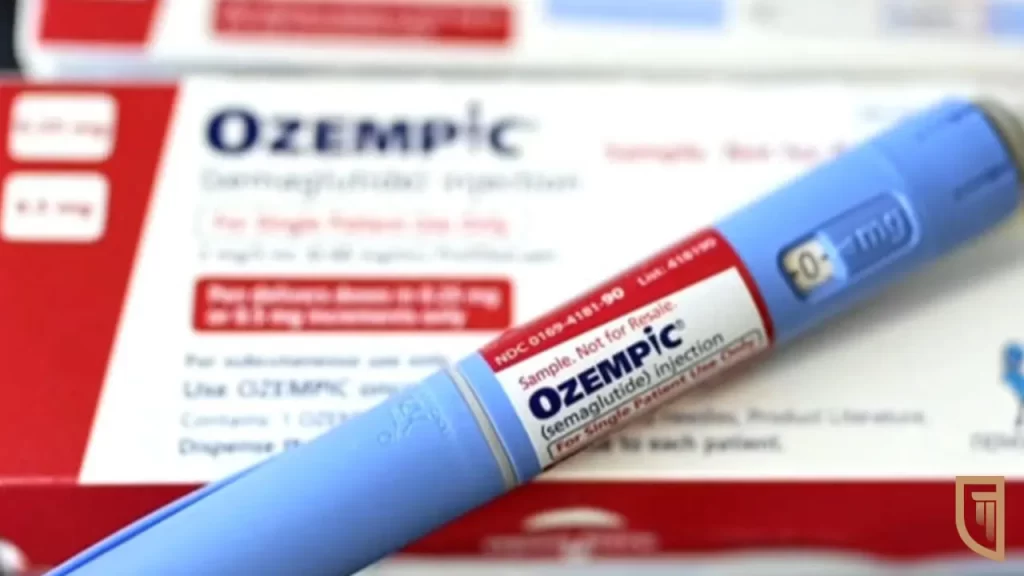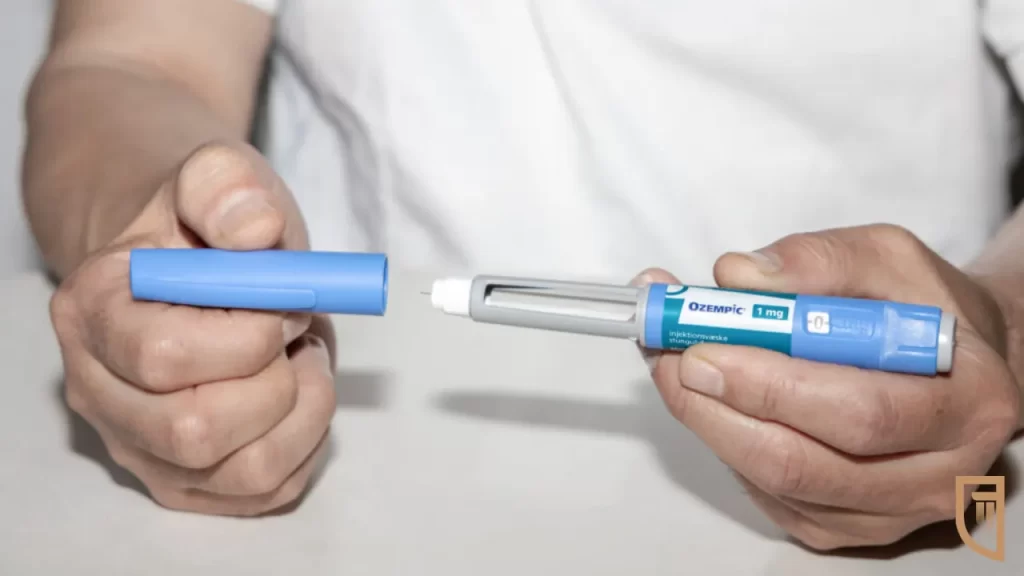Tylenol Lawsuit
The Tylenol autism lawsuit addresses claims that prenatal exposure to acetaminophen, the active ingredient in Tylenol, may increase the risk of developing autism spectrum disorders (ASD) and attention deficit hyperactivity disorder (ADHD). This legal action targets manufacturers for not adequately disclosing potential risks associated with Tylenol usage during pregnancy. If your child has been diagnosed with ASD or ADHD and you were exposed to acetaminophen while pregnant, you might be eligible to file a lawsuit. Legal Claim Assistant offers a free case review to help determine if you can seek compensation for this exposure.

Written by: Sarah from Legal Claim Assistant, Last updated: April 25, 2024
Table of Contents
What is the Tylenol lawsuit?
The Tylenol autism lawsuits contend that prenatal exposure to acetaminophen, the active component in Tylenol and other generic acetaminophen products, is linked to autism spectrum disorder (ASD) and attention deficit hyperactivity disorder (ADHD) in children. These lawsuits assert that drug manufacturers failed to warn pregnant women of the risks, despite scientific evidence suggesting that acetaminophen use during pregnancy can affect fetal brain development and increase the child’s risk of developing neurodevelopmental disorders.
Filed in federal courts, including the multidistrict litigation (MDL) overseen by Judge Denise Cote in the Southern District of New York, these cases are being reviewed collectively to address common factual questions about the association between prenatal acetaminophen exposure and the development of autism spectrum disorders in children. The Tylenol autism litigation aims to hold manufacturers accountable for not disclosing the health risks associated with their products, seeking compensation for affected families.

Who qualifies for the Tylenol autism lawsuit?
Individuals who may qualify for the Tylenol autism lawsuit typically include children diagnosed with autism spectrum disorder (ASD) or attention deficit hyperactivity disorder (ADHD) whose mothers used Tylenol (acetaminophen) during pregnancy. The lawsuits contend that prenatal exposure to acetaminophen, found in Tylenol and similar products, is linked to developmental disorders in children.
To qualify, plaintiffs generally need to demonstrate that the mother took Tylenol or generic acetaminophen products while pregnant, particularly during critical periods of fetal brain development. Families who suspect their child’s condition may be related to Tylenol use during pregnancy are encouraged to contact experienced Tylenol autism lawyers who are reviewing cases under the consolidated multidistrict litigation (MDL) in federal court.
What proof do you need for Tylenol autism lawsuit?
To support a Tylenol autism lawsuit, substantial evidence is required to establish a connection between Tylenol use and the development of autism or ADHD. This includes:
Medical Records: Documentation of prenatal acetaminophen exposure and medical records diagnosing the child with autism or ADHD.
Scientific Evidence: Information linking acetaminophen use during pregnancy to an increased risk of neurodevelopmental disorders. Lawyers often rely on a range of studies and expert testimonies to build a case.
Purchase Receipts or Prescriptions: While not always necessary, proof of purchase or prescription can help substantiate the claim of acetaminophen use.
Expert Testimonies: Specialists in pharmacology, pediatrics, or neurodevelopment may provide insights into how acetaminophen impacts fetal development and contributes to ASD or ADHD.
Each case is individually assessed by the legal team managing the Tylenol autism MDL, led by Judge Denise Cote, who oversees the federal multidistrict litigation aimed at handling these complex cases efficiently.
Which side effects are related to this lawsuit?
The Tylenol autism lawsuits primarily focus on the alleged side effects of prenatal exposure to acetaminophen, the active ingredient in Tylenol. The main concern highlighted in these lawsuits is the potential development of neurodevelopmental disorders in children, specifically autism spectrum disorder (ASD) and attention deficit hyperactivity disorder (ADHD).
In the numerous Tylenol autism cases reviewed under the multidistrict litigation (MDL) overseen by Judge Denise Cote, plaintiffs claim that children developed autism or ADHD as a result of their mothers’ use of Tylenol during pregnancy. Scientific evidence linking Tylenol to these conditions has been a critical aspect of the litigation, with studies suggesting that acetaminophen may interfere with fetal brain development.
The claims in these lawsuits include:
Autism Spectrum Disorder (ASD) Diagnosis: Children diagnosed with ASD following exposure to Tylenol or other acetaminophen products during prenatal development.
Attention Deficit Hyperactivity Disorder (ADHD): Similar claims have been made for ADHD, with allegations that acetaminophen exposure is linked to this condition as well.
The Tylenol autism litigation also addresses the broader implications of these potential side effects, forming the basis of both individual lawsuits and class action claims filed in federal and state courts. These cases have been consolidated in various jurisdictions, including the high-profile federal MDL managed in the Southern District of New York, to streamline the process and address common issues such as the adequacy of warnings provided by drug manufacturers and the legality under federal law.
As these legal battles continue, new Tylenol autism cases are being filed, with law firms across the country, including prominent ones like the Million Dollar Advocates Forum and CVS Pharmacy-affiliated legal teams, actively reviewing claims and representing affected families.
Need help filing a Tylenol Claim?
How to file a Tylenol autism lawsuit?
To file a Tylenol autism lawsuit, individuals typically need to prove that a child developed autism spectrum disorder (ASD) or attention deficit hyperactivity disorder (ADHD) potentially due to prenatal exposure to acetaminophen, the active ingredient in Tylenol. Working with experienced Tylenol autism lawyers, such as those affiliated with Legal Claim Assistant, ensures proper guidance through the complex legal process, including gathering necessary medical records and scientific evidence linking acetaminophen to autism and ADHD.
Plaintiffs must typically show that they used Tylenol or generic acetaminophen products during pregnancy and that their child was diagnosed with autism or ADHD. Legal Claim Assistant can help in filing claims under the mass tort litigation, where cases are reviewed for inclusion in the multidistrict litigation (MDL) overseen by Judge Denise Cote. The law firm will navigate federal court procedures, manage filings, and represent the plaintiff’s interests against the pharmaceutical companies.
How long does the Class action Tylenol autism lawsuit take?
The duration of a class action lawsuit for Tylenol autism can vary significantly based on several factors including the complexity of the case, the number of plaintiffs, and legal hurdles such as motions to dismiss. Typically, these lawsuits can take several years to resolve. The process involves consolidating individual claims into a class action or MDL to address common issues such as the link between acetaminophen and neurodevelopmental disorders efficiently.
For instance, current Tylenol autism litigation involves extensive review of scientific studies and expert testimonies to establish a credible link between Tylenol exposure and autism. The resolution might be delayed by extensive litigation phases, including discovery, trial, and potential settlement negotiations. Throughout this period, Tylenol autism lawsuit updates are provided to keep all parties informed on the progress and any significant court rulings, like those from Judge Cote, who oversees many of these cases.

When will the Tylenol autism lawsuit be settled?
The settlement timeline for the Tylenol autism lawsuits is currently uncertain. These cases, involving claims that acetaminophen during pregnancy may lead to autism spectrum disorder (ASD) and attention deficit hyperactivity disorder (ADHD), are complex and involve many parties. The legal process, overseen by judges like those in the Tylenol multidistrict litigation (MDL) under Judge Cote, typically requires extensive review of scientific evidence and expert testimonies. Each case must be thoroughly reviewed, which can extend the timeline. Given the complexities and the ongoing nature of current trials and motions to dismiss, it is challenging to predict an exact settlement date.
Tylenol autism lawsuit settlement amounts
The average settlement amounts for Tylenol autism lawsuits are not yet established as the cases are still in active litigation. Settlements will depend on multiple factors, including the severity of the diagnosed condition, the evidence linking Tylenol or acetaminophen use during pregnancy to the development of autism or ADHD, and the number of plaintiffs involved. In past pharmaceutical settlements involving injuries to children, amounts have varied widely, potentially reaching significant sums where negligence is proven and injuries are severe. As the Tylenol autism class action progresses, and more cases are reviewed or come to trial, clearer patterns regarding settlement amounts may emerge.
Find out how much your Tylenol payout could be:
Tylenol Autism Lawsuit Update
Recent developments in the Tylenol autism lawsuits have brought new insights and updates. The Tylenol litigation under Judge Cote in the federal Tylenol lawsuits continues as new evidence and acetaminophen autism lawsuits are reviewed. Families affected by autism spectrum disorder diagnosis linked to acetaminophen use are encouraged to stay informed as Judge Cote ruled on important motions to dismiss, impacting the direction of these cases.

Hiring the Best Law Firm for Tylenol Autism Lawsuit
Selecting the appropriate law firm for your Tylenol autism claims involves identifying one that has successfully managed acetaminophen lawsuits, particularly those in state court acetaminophen lawsuits and federal multidistrict litigation. Legal Claim Assistant offers access to firms with a deep understanding of the legal challenges and scientific evidence presented in Tylenol or acetaminophen products cases, ensuring expert representation.
Find out if you qualify:
Get Help from Experienced Tylenol Autism Lawsuit Lawyers
If you are dealing with a diagnosis of autism spectrum disorder possibly linked to acetaminophen during pregnancy, it is crucial to seek expertise from experienced Tylenol autism lawsuit lawyers. Contact Legal Claim Assistant for a free case review to explore your options. Our network is well-versed in navigating the complexities of the Tylenol class action lawsuit and obtaining just compensation for families affected by Tylenol exposure. Speak directly with an assistant today to secure the legal representation your family deserves.
Need help with your Claim?
Written by:
Nicky from LegalClaimAssistant.com
LegalClaimAssistant.com simplifies the process of pursuing legal action. Access information, lawsuit guides, and updates on drugs, products, and other matters that may impact you.
4 References
- Holpuch, Amanda. “Two Army Veterans Awarded $110 Million in 3M Earplug Lawsuit.” The New York Times. January 28, 2022. Retrieved on May 12, 2022 from https://www.nytimes.com/2022/01/28/us/veterans-earplugs- 3m-lawsuit.html
- LexisNexis® Legal Insights. “Product liability & strict liability.” January 06, 2021. Retrieved on May 5, 2022 from https://www.lexisnexis.com/community/insights/legal/b/thought-leadership/posts/understanding-the- interplay-between-strict-liability-and-products-liability
- National Highway Traffic Safety Administration. “Letter to Tesla: Full Self-Driving Software May Cause Crash.” Retrieved from: https://static.nhtsa.gov/odi/rcl/2023/RCAK-23V085-2525.pdf. Accessed on February 17, 2023.
- Unified Parkinson’s Advocacy Council. “Paraquat Dichloride Registration Review.” July 24, 2017. Retrieved on May 12, 2022 from https://files.michaeljfox.org/Paraquat_letter_FINAL.pdf



